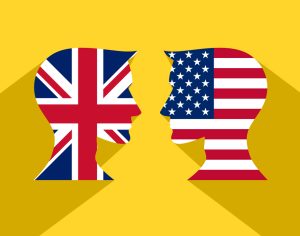Whether it’s a hand towel, bath towel or beach towel, they’re necessary – and the prospect of purchasing products like these are as riveting as picking lint from a carpet. But, in the case of the beach towel, one startup is on a mission to sex up the global market and supporting the environment in the process.
Launched in August 2015, Dock & Bay, the quick-dry towel brand, is the byproduct of two travel-loving best friends who found themselves having a serious brainstorm amidst a drinking sesh. The result was a light and compact, sand and odour-resistant beach towel that dries three times faster than a regular towel.
Given what a unique proposition this is, the pair turned to Dragons’ Den for backing and walked away with a £75,000 investment from Deborah Meaden. The business hasn’t just caught the eye of celebrity investors though but its desirability has generated a strong global audience too. It’s easy to see why – just think of all the extra space for duty free without hefty beach towels weighing down suitcases when jetting off on a holiday.
Opening in the UK, where co-founder Andy Jefferies can be located, Dock & Bay now supports worldwide shipping serving Europe, the US and Australia, the latter of which is where Aussie co-founder Ben Muller spends his days.
Speaking with Elite Global about tackling international markets, Jefferies explains it’s key a business understands the market it’s going to tackle before rushing in. “People speak differently, like different things and styles, laugh at different jokes, have different pop culture,” he says. In the case of Dock & Bay, the founders have designed the brand to be playful and cheeky, so that’s something to be mindful of to ensure no unintentional offence or confusion is caused, for example.
Although, being born business risk-takers, Jefferies and Muller have always used the launch and learn and approach – which has its benefits. “Sometimes you can get way too bogged down in detail, which puts you off ever making the step at all,” Jefferies reasons.
However, the duo always make sure check the legality of their ideas before diving in on the deep end and risk landing in hot water. “You need to know all the legal restrictions and it can often be worth consulting a professional on this one,” says Jefferies, explaining a series of steps were required to sell in the US before stock could even be shipped out there. “And now we’ve started registering in all the states for sales tax, a very complicated process and not one you need to do straight away,” he adds.
But even with the help of Amazon, the founders discovered some hurdles to tackle when trying to scale the US business. “In order to really grow into stores over there and understand the market better to grow our website, we really need feet on the ground, people building relationships, which comes at a cost,” says Jefferies. “It’s a next step in our strategy but won’t be an easy one.”
Complicated it may be but absolutely worth it. Despite sales starting in the UK, the US accounts for half of all company sales and Jefferies reckons they’re yet to scratch the surface. “Ben and I noticed a gap in the market for our products worldwide, not just in the UK, so we wanted to get moving on spreading the word and making our name globally,” he says. “With the power of Amazon, we were able to expand globally and learn about new markets without ever stepping foot in those countries. The power of the internet.”
Although the internet has streamlined processes, especially in the US and also on Muller’s Australian turf, Jefferies admits there have been some difficulties. “Europe has been okay but we’ve come across language barriers,” he reveals. “We’ve found it easier to launch in English-speaking countries as we have no idea of what our listings even translate as. The person translating for us could be talking about chickens for all we know.” The downside to this is there’s a learning curve surrounding customer service and understanding the consumer needs. “Japan was probably too risky too early,” he continues. “Not only were there language barriers but also the way they write in symbols is completely different, adding an extra layer of complexity. Actually getting our stock over there wasn’t the problem but we’ve now had to pull out of that market – for now.”
In terms of leveraging Amazon, Jefferies believes the e-commerce giant has been extremely powerful for crossing borders and part of the launch strategy that sits alongside the standalone Dock & Bay website. “We launch in new countries with Amazon, we learn about the market and test new products,” he says. “Our affordable and unique product ensures we’re perfect for the platform, as not everything is. Then, where we see success, we build this out through a strong focus on marketing to our website and trade shows to get into the retail space.”
Amazon isn’t the be all and end all though as all markets differ, linking back to Jefferies’ earlier point about knowing each region well. “We use eBay a lot more in Australia where it is still very popular,” he details. “They’re not as far ahead from an e-commerce perspective as places like the UK and US. Amazon has only just launched there this year and has struggled so far to gain traction. We also want to try and break South America one day, using their equivalent called Mercado Libre.”
A tip from Jefferies is to manage sales with localised bank accounts, which Dock & Bay has for sterling, euro, US and Australian dollars – an approach with two positive outcomes. “We don’t get charged the high conversion fees from people like Amazon and PayPal,” he highlights. “These can be around 4% of all your revenue, which is not good for us. And secondly, we aren’t paying an exchange rate game all the time. We hold the money in these accounts until we need it. We pay our main supplier in US dollars and US dollars is our biggest currency income, so works well.”
Clearly Dock & Bay is one company that’s not slowing down its global agenda despite the uncertainty of Brexit, which can serve as inspiration for other growing startups. It also teaches us alcohol can have positive outcomes, like the successful creation of an international business, so perhaps crack a can or two open this evening if you plan to expand worldwide. ![]()
Share via:








































